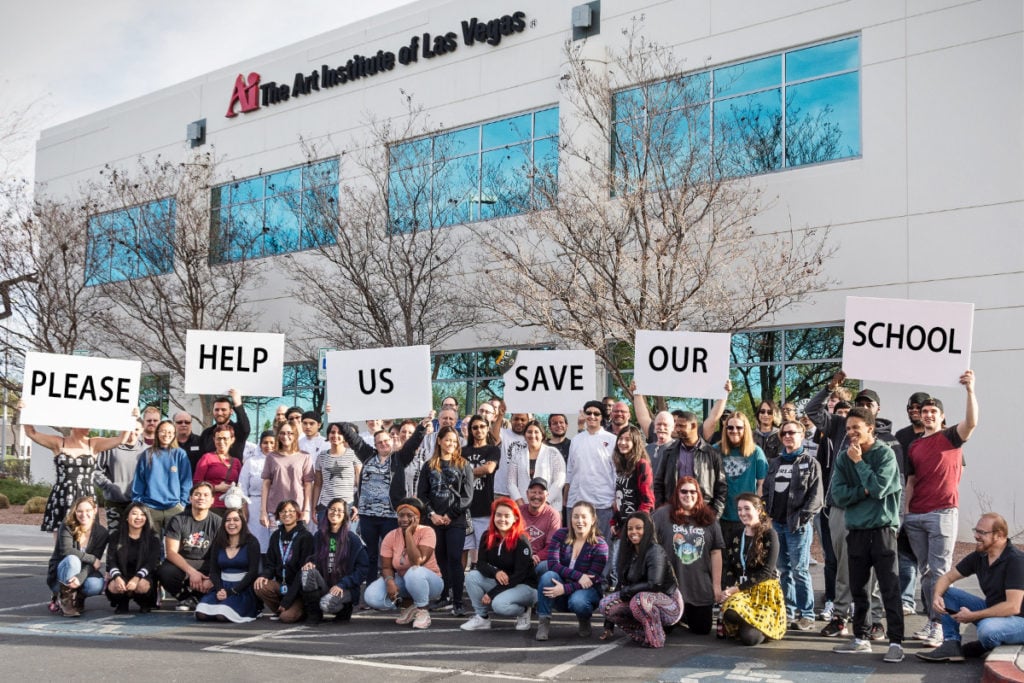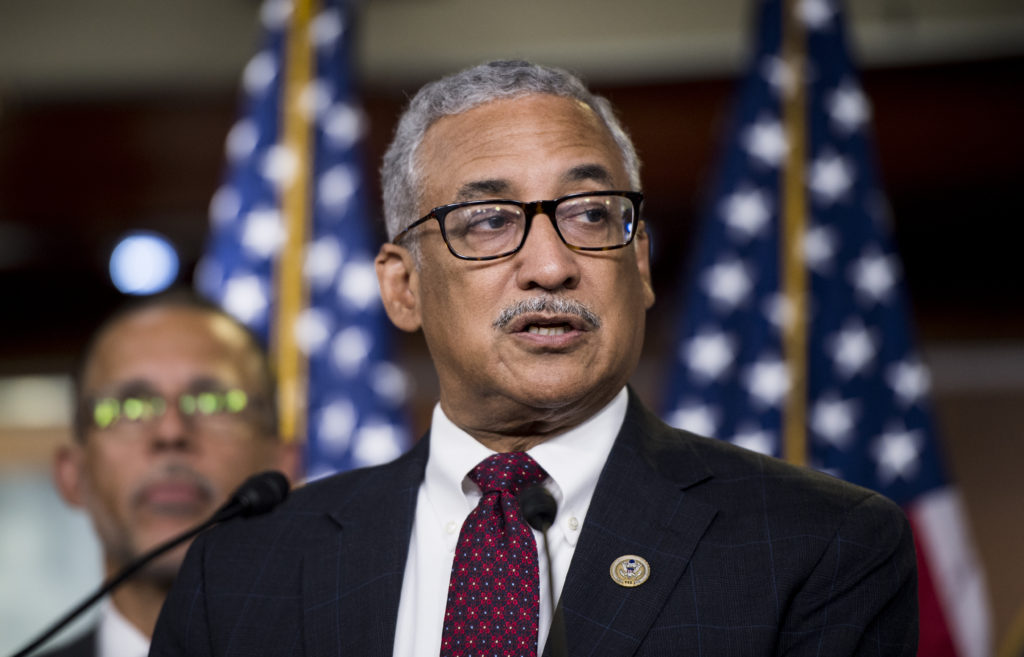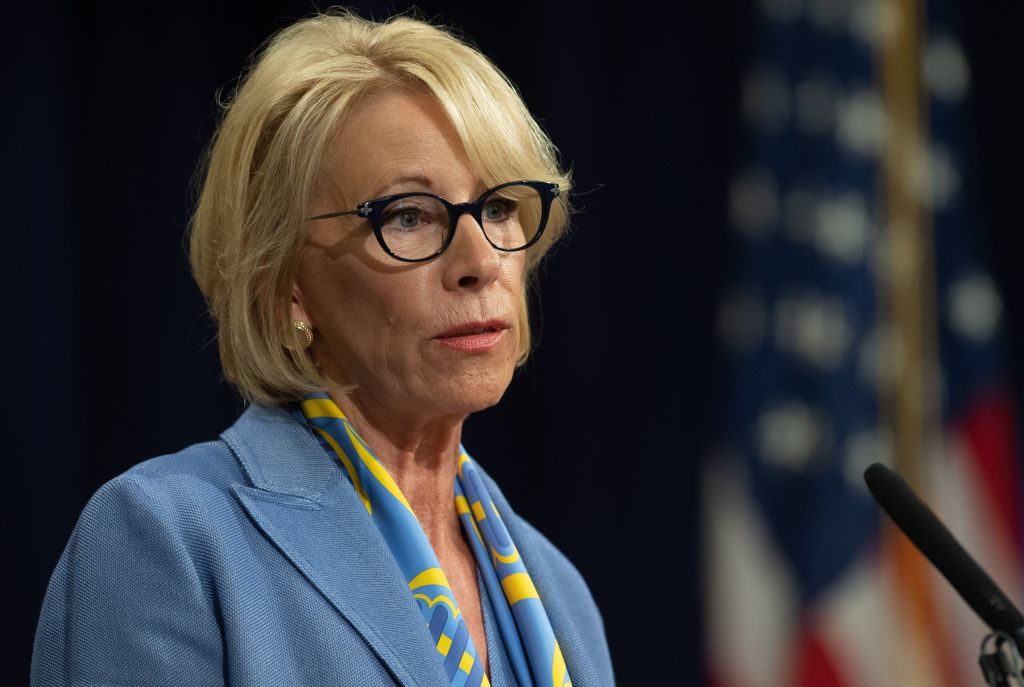Politics
Congress Is Investigating a For-Profit Education Company Accused of Scamming Art Students (With the Trump Administration’s Help)
When the schools lost their accreditation, they didn't tell students.

When the schools lost their accreditation, they didn't tell students.

Taylor Dafoe

The for-profit education company that’s been shuttering art schools around the nation in recent months is now being investigated by Congress for potential wrongdoing.
In 2017, Dream Center Education Holdings, a nonprofit subsidiary of a California-based megachurch, purchased a chain of nearly 20 schools under the “Art Institute” brand (as well as dozens of others), despite having no experience in higher education.
Within a year, the company was out of money, and accreditation was stripped from many of its institutions. The majority of the campuses—including 18 Art Institute schools—were either closed or sold, leaving some 26,000 students with huge sums of debt and no degrees.
Earlier this month, Virginia Representative Bobby Scott, who serves as chair of the House Education and Labor Committee, announced that the committee had obtained a trove of emails and other documents from Dream Center officials that allegedly show that the company deliberately deceived students, and that the US Department of Education sought to help the company.

Rep. Bobby Scott of Virginia, 2018. Photo: Bill Clark/CQ Roll Call.
“The actions of Dream Center and the Department of Education’s execution of its responsibility to protect students raises grave concerns,” Scott said in a letter to Betsy DeVos, President Trump’s education secretary. The representative went on to explain that after several Dream Center-run Art Institutes had been stripped of accreditation, the company chose not to inform students enrolled at these schools, letting them continue to pay tuition for a full five months while working toward worthless credits.”
The committee says the documents also reveal that when department of education officials learned of Dream Center’s “false claims of accreditation” they did not require them to take any action. “Instead, the Department informed Dream Center executives that it would work to retroactively accredit the institutions during the period they had lied to students—rewriting history to erase Dream Center’s deceptive marketing practices,” Scott said.

US Secretary of Education Betsy DeVos speaks during the Summit on Combating Anti-Semitism at the Department of Justice in Washington, DC, July 15, 2019. Photo: Saul Loeb/AFP/Getty Images.
The Department of Education has denied the committee’s accusations. “This story is based entirely on a wrongful premise,” the department said in a statement. “The full and complete timeline shows Dream Center did not receive any unique benefits from policy decisions made by the department. We simply worked to try and get as many students into a new program as possible. While we did not achieve a perfect outcome, our actions helped thousands of students land on their feet.”
Earlier this year, Dream Center surrendered ownership of all but two of the 14 remaining Art Institute branches, the Art Institute of Pittsburgh and the Art Institute of Las Vegas. The 98-year-old Art Institute of Pittsburgh closed in March, while, this week, a federal judge approved the sale of the Las Vegas branch to former faculty at the school.
Federal education regulators ruled that ownership of the other 12 schools would be transferred to a Delaware-based nonprofit, Education Principle Foundation.